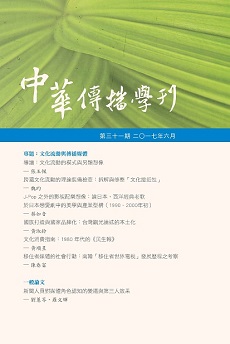 閱覽人數: 2663
閱覽人數: 2663
June
2017
No. 31
文化流動與傳播媒體
Cultural Flow and Media頁數:49 - 78
作者(中)
蔡如音
作者(英)
Eva Tsai
關鍵詞(中)
:日本流行音樂(J-pop)、日劇、電視製作人、暢銷經典歌、影 視配樂、編劇
關鍵詞(英)
J-pop, Japanese TV drama, TV producers, classic hits, soundtracks, scriptwriters
中文摘要
1990 ~ 2000 年間盛行於日本與東亞地區的日本戀愛劇,在配樂上一直與 J-Pop 音樂類型相當密切,J-Pop 的明亮、時尚與現代感是絢爛愛情故事的常備配樂。同時期,部分日劇創作者卻採用日本、西洋經典老歌作為主題曲與配樂。本研究檢視日本電視產業資料,分析於商業台競爭脈絡下,編劇與製作人的音樂感性與權力(如主題曲、主唱者的選取);並以配樂與戀愛劇敘事的互文分析,提出日本、西洋老歌如何建構少年少女的情感主體,以及共情同理(empathetic)的美學。
英文摘要
Japanese ren’ai dorama, a television genre of contemporary love stories that gained popularity domestically and regionally in the 1990s, has exhibited close affinity with the music genre J-Pop, which emerged in the same decade. The commercially viable J-Pop genre supplied theme songs and soundtracks to ren’ai dorama, infusing the television genre with a chic, upbeat, and romantic quality. Despite J-Pop’s dominant role, other music genres have informed the aesthetics and sensibilities of ren’ai dorama. This article presents a case study of alternative music and soundtrack choices in the same production context. Specifically, the study examined dramas produced by scriptwriter Nojima Shinji and Tokyo Broadcasting System in-house producer Ito Kazuhiro. Their collaborated works mobilized classic Japanese and Western hit songs from the 1960s and 1970s to underscore the emotional subjectivity of adolescent youths. Rather than pursuing romantic expectations as encouraged by J-Pop, their love stories sought to affirm an empathetic aesthetic that also contributed to this cultural form.